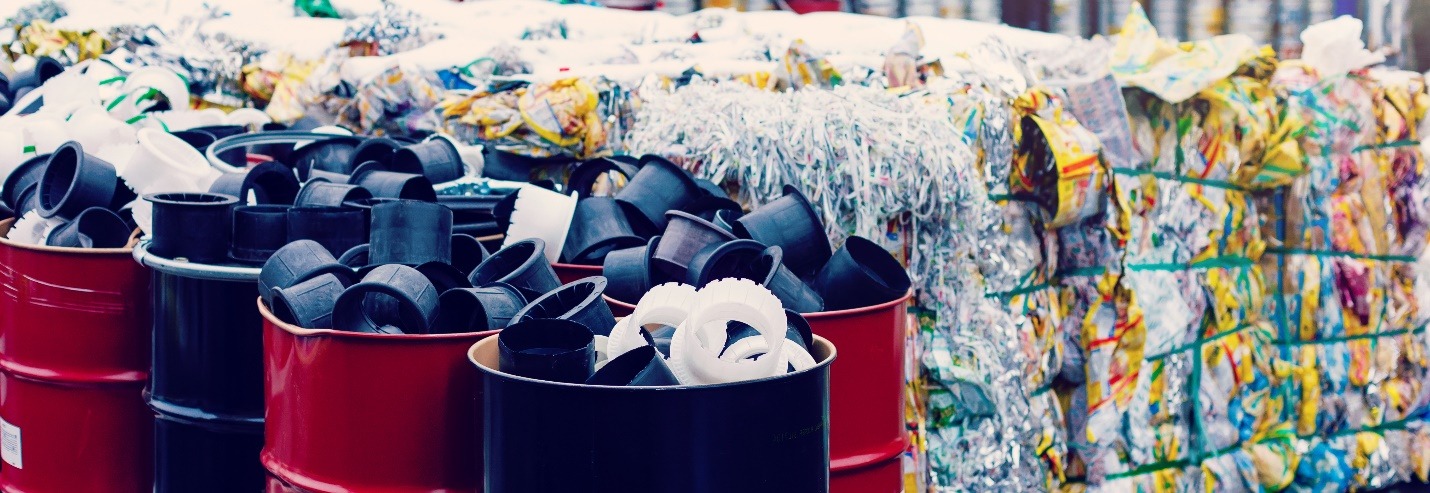CALL NOW FOR A FREE QUOTE 866.760.8194
Learn More About the Types of Waste Management

Every business produces different categories of waste products and needs different types of waste management. Effectively managing your own unique waste stream requires planning, equipment, and good information about what it contains.
The main types of waste management for businesses to address are:
Municipal Solids
Municipal solid waste, or MSW, refers to everything that ends up in the trash. This often contains recyclable materials and may include hazardous materials, food waste, medical waste, clothing, computers, and appliances.
Garbage or General Waste
When the recyclable materials, organic matter, and scrap metal have been removed, what remains is garbage or general waste. Keeping this volume as low as possible with diversion and compaction will reduce landfill fees and costs of hauling.
Liquid Waste
Farms and manufacturing facilities can produce large amounts of liquid waste, which require different types of waste disposal methods. In some cases, the liquids are made solid with the addition of binding agents and hauled away normally. Organic wastes can be composted and used for fertilizer.
Hazardous Waste
Items which are flammable, toxic, or corrosive are forbidden in the municipal solid waste stream. Hazardous waste management facilities process these separately from household garbage. Some items that contain hazardous materials include:
- Automotive fluids like antifreeze, gasoline, and motor oil
- Electronic devices like TVs, computers, printers, and cell phones
- Fluorescent light bulbs and lamps
- Devices containing mercury, like thermostats or thermometers
- Paint, including spray paint, oil-based paint, and latex products
- Garden chemicals such as fertilizers and pesticides
- Many cleaning chemicals like drain cleaner, floor polish, or rust remover
Recyclable Materials
In this category are many waste materials that can return value to your business or your community when they are removed from the waste stream.
Cardboard Waste
Almost every business produces cardboard waste in large amounts. Cardboard is easy to recycle but bulky, which makes it hard to handle and inefficient to transport. Many businesses choose to compress and bale their cardboard because the finished product is more attractive to recycling companies who may pay for clean and baled cardboard or pick it up for free.
Paper Waste
Your business might produce tons of paper waste each year. After making internal efforts to reduce the amount of paper used, recycling waste paper is the best policy. Because paper is made of fibers, it can easily be used again, saving trees in the process.
Plastic Waste
Plastics are used heavily in almost every industry, from foodservice to construction. Due to the different characteristics of various kinds of plastic, many types of plastic waste management may be needed. Many recyclers are having difficulty finding a market for plastic waste, especially if it is not sorted accurately. Many businesses struggle to find a responsible way to dispose of their plastic waste.
Styrofoam or Expanded Plastic Waste
When polystyrene or other plastics are expanded with air at high temperatures, they are used to create Styrofoam cups, plates, and packing peanuts. These products are considered one-time use or disposable, but sadly they do not biodegrade naturally. Whenever possible, reuse packing materials and recycle expanded plastic products.
Wood Waste
Wood waste is a common challenge for businesses that use pallets, manufacture furniture, or perform construction or demolition work. Wood can be reused in some cases by donating pallets or scraps to the community, or it can be chipped and composted like other organic matter.
Textiles and Fabric Waste
Textiles or fabric waste can be either organic or synthetic. Cotton and linen products will biodegrade in landfills, but synthetic fabrics will not. Clothing, tablecloths, carpets, and fabric scraps can sometimes be donated to the local community for crafts. Usable clothing is collected by charitable organizations. Most textiles can be baled and shipped off for recycling as well.
Metal Waste (Scrap Metal)
Metal waste or scrap metal is probably the single most valuable material in your waste stream. Even the aluminum foil and beverage cans used in the food industry quickly add up to a valuable amount of scrap when separated from garbage disposal. Used car parts and manufacturing scrap metals like iron and copper are always in high demand.
Managing All Your Waste Types Professionally
There are many solutions to your waste management challenges that can lower your waste removal costs and increase your recycling revenue. At Global Trash Solutions, we work with small and large businesses to implement the right combination of equipment and contract services to streamline and improve the process.
We have provided innovative solutions to major organizations, including Costco, Subway, Marriott, and Starbucks, and we can help your business thrive in this challenging marketplace. Our expert consultants will help you find the best waste management solutions for your business—whether you operate a single facility or hundreds of locations across the country. GTS has vendor partners all over the U.S. who offer free pickup and rebates for baled cardboard, plastics, and other in-demand materials. Contact us to learn more.
